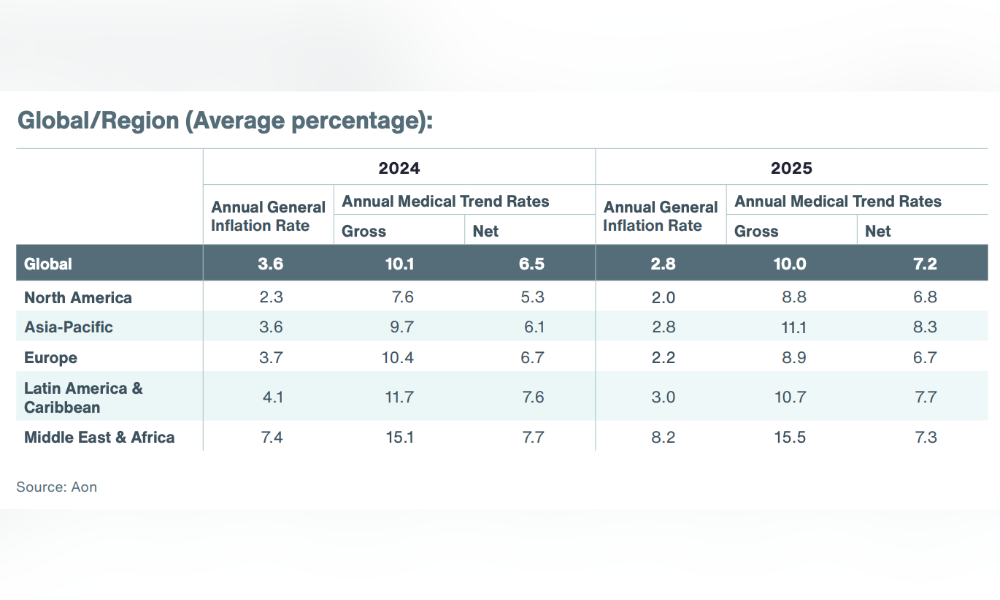
Employers, policymakers, insurers urged to find sustainable healthcare solutions

Employers, policymakers, and insurers across New Zealand are being urged to collaborate in finding sustainable healthcare solutions in the wake of surging medical costs in the country.
Medical trend rates in New Zealand hit 14.5% in 2025, nearly double from a 7.4% in 2024, according to Aon's 2025 Global Medical Trend Rates Report.
"Taking into account these rising medical trends, it's vital that employers, policymakers, and insurers collaborate to find sustainable healthcare solutions that balance quality care and cost," said Anson Davies, health leader for New Zealand at Aon, in a statement.
Davies attributed the surge in healthcare costs in New Zealand to various reasons.
"In 2024, there was a larger-than-expected rise in claimable events and procedures, which had a sizable effect on the industry," Davies said. "The long-awaited impact of COVID-19 was also finally felt, as many policyholders caught up on delayed healthcare from 2020 to 2023."
The health leader also attributed the sharp spike to general inflation, which impacted the cost of medical care.
"This, coupled with sustained pressure on the public healthcare system, has led more people to seek private healthcare, in turn contributing to medical inflation," Davies said.
New Zealand's medical trend rate is way above the 10% global average, and are the second-highest in APAC, just behind Kazakhstan at 22%.

Among the drivers of rising medical trend rates are:
Increased demand for prescription and specialty medications
Innovations in medical technology
Geopolitical factors impacting supply chains and healthcare costs
Rising support for emotional health, with stress management and wellbeing initiatives becoming a priority
To mitigate the rising costs, employers across the world are implementing wellbeing initiatives, cost-containment measures, and flexible benefits plans.
"Apart from allowing employers a greater deal of cost control, flexible benefit plans often serve as an enabler of change in employees' behaviour," the Aon report read.
"These plans also work as a tool to deliver differentiated benefit packages that can attract and retain talent, while also offering adaptive benefits to meet individual needs and address company policies around diversity, equity, inclusion, and belonging."